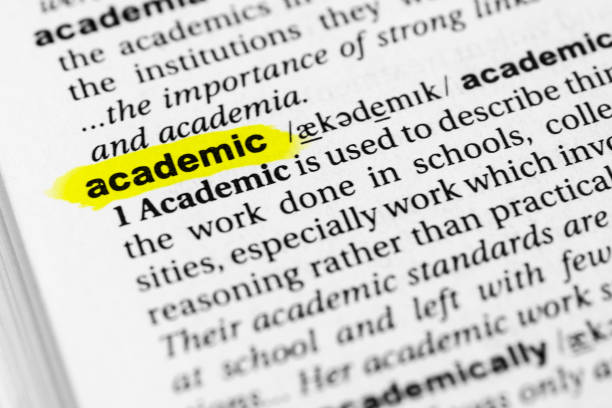How Are UK Dissertations Evolving in a Post-AI Academic World?

Higher education is not an exception to how artificial intelligence (AI) has revolutionised almost every industry. The way dissertations are addressed, produced, and evaluated is changing significantly in the UK Assignment Writing Service. In order to maintain rigour, creativity, and critical thinking, institutions are reassessing long-standing academic standards as AI technologies become increasingly interwoven into academic life. But in this post-AI academic environment, how precisely are UK dissertations changing? Let’s investigate the shifting terrain.
Redefining Uniqueness in the AI Age
Originality in dissertation writing services UK has historically been linked to distinct perspectives, autonomous analysis, and genuine voice. But when students have access to technologies like ChatGPT and AI-assisted paraphrasers, the idea of original work is being re-examined.
Students must increasingly show process-driven uniqueness, including how they developed their research subject, how they arrived at an argument, and how they analysed sources, according to UK institutions and AI Academic Trends. Institutions are starting to place more focus on academic integrity and openness rather than completely banning the use of AI. In order to ensure that students consider how AI tools impacted their thinking rather than replacing it, several colleges have included disclosures about AI usage in their submission procedures.
Tighter Checks for Plagiarism and AI-Generated Content
Traditional plagiarism checks by themselves are no longer adequate in light of the availability of AI-generated material. Advanced software that can identify machine-generated text or assess writing styles that differ from a student’s prior submissions has been implemented by several UK institutions.
Although colleges are still wary, tools like Turnitin’s AI writing detection function are being tested to promote academic honesty. Since these technologies are not perfect, many schools use interviews or viva-style defences to test students’ ability to explain and defend their written work.
A stronger focus on process-based and reflective evaluation
Universities are putting more of a focus on process-based evaluations in order to mitigate the risk of an over-reliance on AI. As part of their evaluation, students may now be required to produce reflective logs, research diaries, or annotated bibliographies in addition to their final dissertation.
This change facilitates the evaluation of a student’s growth, comprehension, and sincere interest in their topic by academic professionals. Additionally, by educating graduates for real-world problem-solving rather than rote academic production, it supports the UK’s rising emphasis on skills-based learning.
The Roles of Supervisors Are Increasingly Interactive
Supervisors of dissertations are becoming increasingly important in tracking developments and providing individualised advice. Regular one-on-one conversations and progress reports are essential for maintaining authenticity in a post-AI setting.
Supervisors are urged to have meaningful academic exchanges with students and are receiving training on how to spot AI-assisted content. These discussions can assist in assessing students’ comprehension of the fundamental ideas behind their work, which AI systems are unable to duplicate.
Promoting the Use of AI Critically as an Academic Instrument
Instead of explicitly prohibiting AI, progressive UK colleges are starting to promote its critical and ethical application. For example, if students preserve complete ownership and transparency, they could be allowed to utilise AI for arranging difficult data, generating ideas, or improving language.
This is similar to actual research and business procedures, where artificial intelligence is viewed as a tool to supplement human intelligence rather than as a substitute for it. Updates are being made to dissertation modules to incorporate talks about algorithmic bias, digital literacy, and the limits of information produced by artificial intelligence.
Dissertation Format Diversification
The variety of dissertation formats in UK acadacademiaanother trend. Particularly in media, education, and creative fields, some programs are providing students with new formats—like practice-based research, video essays, podcasts, or data storytelling projects—while keeping in mind the digital transformation and artificial intelligence.
This enables students to convey information in a more dynamic, individualised manner while still being assessed on their research evidence, academic rigour, and argument clarity.
A stronger focus on research ethics
Numerous ethical concerns are brought up by AI’s use in research. Is it ethical for AI to collect data? Is it able to accurately describe delicate topics? Can research results be impacted by biases in AI models?
The research ethics section of dissertations is being strengthened by UK institutions, particularly for postgraduate students. Students are now frequently required to report any use of AI in literature reviews, survey analysis, or writing processes as part of ethics approval procedures. This promotes impartiality, openness, and critical thinking on data sources in research.
Modifying Academic Guidelines and Evaluation Standards
Universities in the UK are actively updating their academic rules to stay up with technological advancements in response to AI’s expanding role. AI technologies cannot effectively duplicate depth of comprehension, originality of thinking, and analytical reasoning; hence, assessment standards are being changed to reward these attributes.
Institutional readiness and staff development
Teachers need to adjust to AI as much as their pupils do. To teach lecturers and supervisors how to identify AI usage, evaluate new assessment data, and include AI topics in the curriculum, UK institutions are investing in staff development programs.
Institutions are increasingly holding workshops on academic integrity, ethical AI use, and digital literacy. This makes it possible to guarantee that employees are not just monitoring AI abuse but are also prepared to guide students in the responsible and effective use of AI. The change is part of a larger institutional endeavour to promote justice, creativity, and resilience in the academic environment after artificial intelligence.
Conclusion: Academic Writing’s Hybrid Future
UK dissertations are evolving into more than merely lengthy writings in the post-AI academic environment. They are developing into complex assignments that assess a student’s capacity for critical thought, moral behaviour, and genuine communication in an AI-influenced setting.
By carefully accepting AI, integrating it into courses, and rethinking what academic brilliance actually means, UK higher education is adopting a progressive approach rather than seeing it as a threat. This development presents students with a problem as well as an opportunity: to use AI’s capability while maintaining the human element of study.







